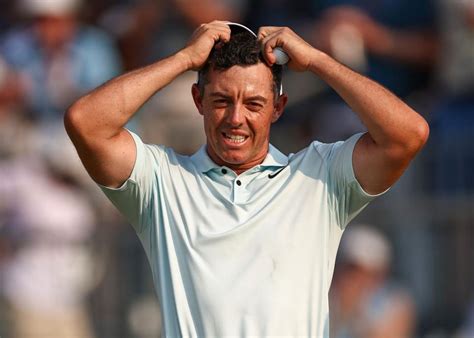
Coco Gauff has responded to Aryna Sabalenka’s complaints about the French Open schedule, arguing that such scheduling disparities are simply part of the sport and that players must adapt. Sabalenka had expressed frustration over what she perceived as unfair scheduling that favored Gauff during their Roland Garros semifinal clash.
World No. 3 Coco Gauff has addressed Aryna Sabalenka’s post-match remarks concerning the perceived unfairness of the French Open scheduling, emphasizing that adapting to varying conditions and schedules is integral to professional tennis. Following her semifinal defeat to Iga Swiatek, Sabalenka voiced her discontent over the scheduling arrangements, suggesting that Gauff had been given an advantageous schedule throughout the tournament. Gauff, however, remained composed and offered a contrasting perspective, asserting that dealing with such discrepancies is part and parcel of the sport.
Speaking to reporters after her loss in the French Open final, Gauff responded diplomatically to Sabalenka’s concerns. “Everybody has their own opinion, but I think in tennis, you play different schedules. I have played matches where I finish at 11 p.m. and have to play the next day at 1 p.m.,” Gauff stated. “So, I think it’s just part of the sport. Unfortunately, it’s not always going to be in your favor. I think that’s just something you have to accept.”
Sabalenka’s criticism stemmed from her belief that the scheduling provided Gauff with more favorable recovery time between matches. The Belarusian player alluded to feeling physically disadvantaged during her semifinal against Swiatek, attributing some of her performance shortcomings to the scheduling discrepancies. “I felt like I didn’t recover well, and that was maybe also because the schedule wasn’t that great. Coco [Gauff] played a match on Tuesday, I played on Wednesday. So it wasn’t fair, I think,” Sabalenka had stated.
Gauff’s response was rooted in her experiences navigating the unpredictable nature of tournament schedules. The young American star highlighted that players often encounter situations where they have limited turnaround time between matches, requiring them to adapt swiftly. She suggested that while ideal scheduling would benefit all players, the reality of tournament logistics means that compromises are inevitable.
“You just try to play the best you can with whatever you’re given,” Gauff added. “Ultimately, I don’t make the schedule, so I can’t really comment too much on it. But I do think that’s just part of the sport, dealing with those kinds of situations.”
The debate over scheduling fairness is a recurring theme in professional tennis. Players and coaches frequently express concerns about the impact of match times and recovery periods on performance. While tournament organizers strive to create balanced schedules, factors such as television broadcasting commitments, venue availability, and weather conditions often complicate the process.
Gauff’s perspective reflects a pragmatic approach to the challenges of professional tennis. By acknowledging the inherent variability of schedules and emphasizing the importance of adaptation, she underscored the mental fortitude required to succeed at the highest level of the sport. Her comments also highlighted the need for players to focus on what they can control, such as their preparation and recovery strategies, rather than dwelling on factors outside of their influence.
The French Open scheduling controversy has sparked broader discussions about the fairness and transparency of tournament arrangements. Some tennis analysts have called for greater standardization of scheduling practices to ensure that all players have equitable opportunities to perform at their best. Others have suggested that players should have more input into the scheduling process to address their concerns and preferences.
However, implementing such changes would likely be complex, given the diverse interests and priorities of stakeholders involved in professional tennis. Tournament organizers must balance the needs of players, broadcasters, sponsors, and fans while navigating logistical constraints.
The incident also highlights the psychological aspect of professional sports. Sabalenka’s comments can be seen as a way to potentially manage expectations or explain her performance, while Gauff’s response demonstrates mental resilience and focus. The ability to handle adversity and maintain composure under pressure is often a key differentiator between top-tier athletes.
Gauff, despite losing the final to Swiatek, has demonstrated significant growth and maturity throughout the French Open. Her ability to address sensitive topics with grace and professionalism reflects her evolution as a player and a public figure. She also acknowledged Swiatek’s dominance on clay, recognizing the challenge of competing against such a formidable opponent on her preferred surface.
“I think she’s just a really great player, especially on this surface,” Gauff said of Swiatek. “I definitely think I’m getting closer, but she’s obviously number one for a reason. Hopefully, I can keep working and get to the point where I can beat her more consistently.”
The scheduling issue isn’t new to tennis. In the past, several high-profile players have voiced similar concerns, leading to debates about potential solutions. Some suggestions include implementing stricter rules about minimum rest times between matches, providing players with more advance notice of their schedules, and creating a more transparent process for determining match times. However, finding a solution that satisfies all parties remains a challenge.
The disparity in scheduling also ties into the broader issue of player welfare. The intense physical and mental demands of professional tennis can take a toll on athletes, and adequate rest and recovery are crucial for preventing injuries and ensuring long-term health. Therefore, any discussion about scheduling fairness must also consider the impact on player well-being.
Gauff’s focus on adapting to circumstances aligns with a common theme in sports psychology. The ability to accept challenges and adjust strategies accordingly is a hallmark of successful athletes. Instead of dwelling on perceived disadvantages, Gauff emphasizes the importance of maintaining a positive mindset and focusing on what she can control. This approach reflects a maturity and resilience that are likely to serve her well throughout her career.
The incident also underscores the strategic element of tournament scheduling. Organizers often consider factors such as potential matchups, television ratings, and fan attendance when determining match times. While these considerations are understandable from a business perspective, they can sometimes create disparities in scheduling that players perceive as unfair.
Ultimately, the debate over scheduling fairness in professional tennis is likely to continue. As the sport evolves, tournament organizers, players, and other stakeholders will need to engage in ongoing dialogue to address concerns and find solutions that promote fairness, transparency, and player welfare. Gauff’s comments contribute to this dialogue by offering a pragmatic perspective and highlighting the importance of adaptation.
The scheduling controversy at the French Open has ignited discussions about the balance between commercial interests and player welfare. With broadcasting rights and ticket sales playing a significant role in the financial success of tournaments, organizers often prioritize scheduling matches that maximize viewership and attendance. However, this can sometimes come at the expense of player recovery and performance, leading to concerns about fairness.
The incident also sheds light on the different perspectives that players and organizers may have on scheduling matters. While players are primarily focused on maximizing their performance and ensuring adequate rest, organizers must consider a wider range of factors, including logistical constraints, television commitments, and fan preferences. Finding a balance between these competing priorities is a complex challenge.
Gauff’s response to Sabalenka’s comments reflects a mature and professional approach to handling criticism. Rather than engaging in a direct confrontation, she acknowledged the validity of Sabalenka’s concerns while emphasizing the importance of adaptation. This approach demonstrates a high level of emotional intelligence and a commitment to maintaining positive relationships within the tennis community.
The scheduling issue also raises questions about the role of player representation in advocating for fairer treatment. Player agents and associations have a responsibility to represent the interests of their clients and ensure that their concerns are heard by tournament organizers. However, navigating the complex dynamics of professional tennis can be challenging, and finding effective strategies for advocating for change requires careful consideration.
The French Open scheduling controversy serves as a reminder of the ongoing challenges involved in creating a fair and equitable environment for professional athletes. As the sport continues to evolve, it will be crucial for all stakeholders to engage in open and honest dialogue to address concerns and find solutions that promote the well-being and success of players. Gauff’s comments contribute to this dialogue by offering a pragmatic perspective and highlighting the importance of adaptation and resilience.
Another perspective to consider is the potential for technological solutions to help optimize scheduling. AI algorithms could analyze various factors, such as player fatigue, travel time, and historical performance data, to create schedules that minimize disparities and maximize fairness. While such solutions may not be perfect, they could potentially help to improve the scheduling process and reduce the likelihood of controversies.
The scheduling debate also touches on the issue of competitive balance in professional tennis. When some players are perceived to have an unfair advantage due to favorable scheduling, it can undermine the integrity of the competition and reduce the chances of upsets. Therefore, ensuring that all players have a fair opportunity to perform at their best is essential for maintaining the credibility of the sport.
Gauff’s focus on adaptation aligns with the broader concept of resilience in sports. Resilience is the ability to bounce back from adversity and overcome challenges. Athletes who possess high levels of resilience are better able to cope with setbacks, maintain their focus, and achieve their goals. Gauff’s response to Sabalenka’s comments demonstrates her resilience and her ability to thrive in a demanding and competitive environment.
The incident also highlights the importance of communication between players and tournament organizers. When players have concerns about scheduling or other issues, it is essential that they have a channel to express their concerns and receive a fair hearing. Tournament organizers should be receptive to player feedback and willing to make adjustments when necessary to ensure that all players are treated fairly.
The French Open scheduling controversy is a reminder that even in a sport as individual as tennis, there are many factors beyond a player’s control that can affect their performance. Players must be able to adapt to these factors and maintain their focus on what they can control, such as their preparation, their mindset, and their execution on the court. Gauff’s comments reflect this understanding and demonstrate her maturity as a player.
The discussion about scheduling fairness also relates to the broader issue of equity in sports. Equity is the principle of treating all individuals fairly and impartially, regardless of their background or circumstances. In professional tennis, equity means ensuring that all players have a fair opportunity to compete and succeed, regardless of their ranking, their nationality, or their gender. The French Open scheduling controversy raises questions about whether current scheduling practices are truly equitable and whether more can be done to promote fairness in the sport.
Gauff’s emphasis on adaptation and resilience is particularly relevant in the context of the COVID-19 pandemic. The pandemic has disrupted the tennis schedule and created numerous challenges for players, including travel restrictions, quarantine requirements, and uncertainty about tournament dates. Players who are able to adapt to these challenges and maintain their mental and physical health are more likely to succeed in this environment.
The scheduling debate also touches on the issue of transparency in sports governance. When decisions about scheduling and other matters are made behind closed doors, it can create suspicion and distrust among players. Tournament organizers should strive to be more transparent in their decision-making processes and provide players with clear and consistent explanations for their actions.
The French Open scheduling controversy serves as a reminder that professional tennis is not just a sport, it is also a business. Tournament organizers must balance the interests of players, sponsors, broadcasters, and fans to ensure the financial success of their events. However, it is important to remember that the players are the heart of the sport, and their well-being and success should be a top priority.
Gauff’s comments reflect a growing trend among young athletes to speak out on important issues and advocate for change. She is part of a generation of athletes who are not afraid to use their platform to raise awareness about social justice, environmental sustainability, and other important causes. Her willingness to engage in these conversations demonstrates her leadership and her commitment to making a positive impact on the world.
Frequently Asked Questions (FAQs)
1. What was Aryna Sabalenka’s complaint about the French Open schedule?
Aryna Sabalenka expressed frustration over the French Open schedule, claiming that it unfairly favored Coco Gauff by giving her more recovery time between matches. Sabalenka played her quarterfinal match a day later than Gauff, leading her to believe she was at a physical disadvantage in their potential semifinal clash, which ultimately did not happen as Sabalenka lost to Swiatek. She stated, “Coco [Gauff] played a match on Tuesday, I played on Wednesday. So it wasn’t fair, I think.”
2. How did Coco Gauff respond to Sabalenka’s concerns?
Coco Gauff responded diplomatically, stating that dealing with varying schedules is part of professional tennis. She highlighted that players often have to play matches with limited turnaround time and that it’s important to adapt. Gauff said, “Everybody has their own opinion, but I think in tennis, you play different schedules. I have played matches where I finish at 11 p.m. and have to play the next day at 1 p.m. So, I think it’s just part of the sport. Unfortunately, it’s not always going to be in your favor. I think that’s just something you have to accept.”
3. What factors influence the scheduling of matches in professional tennis tournaments?
Numerous factors influence the scheduling of matches, including television broadcasting commitments, venue availability, weather conditions, potential matchups for audience appeal, and the need to accommodate all players participating in the tournament. Tournament organizers attempt to balance these factors while ensuring fairness, though compromises are often necessary.
4. What are some potential solutions to address concerns about scheduling fairness in tennis?
Potential solutions include implementing stricter rules about minimum rest times between matches, providing players with more advance notice of their schedules, creating a more transparent process for determining match times, and utilizing AI algorithms to optimize schedules based on factors such as player fatigue and travel time.
5. How does the scheduling debate relate to the broader issue of player welfare in professional tennis?
The scheduling debate is directly related to player welfare because adequate rest and recovery are crucial for preventing injuries and ensuring long-term health. The intense physical and mental demands of professional tennis can take a toll on athletes, so any discussion about scheduling fairness must also consider the impact on player well-being. Unfair scheduling can lead to increased risk of injury and burnout.









